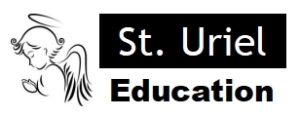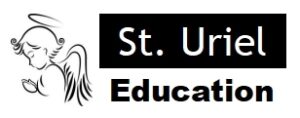The ability to write clearly and coherently is an essential skill for students in any given content area. According to Daniels et al., writing enables students to ‘connect with content and deepen their understanding of it’. The pedagogical strength of writing lies in the process that leads to the end product. It is this process-oriented approach to writing instruction that has been emphasized in multiple writing guides (e.g.see Lucy Kalkins’ works below).
With this shift in focus appeared a new concept in the writing literature entitled Writing Workshop. As I argued elsewhere, Writing workshop as an approach to teaching writing has been around for more than 30 years now, exactly since the publication of “The Art of Teaching Writing” by Lucy Calkins and “In The Middle” by Nancie Atwell.
Other proponents of this approach include celebrated scholars such as Donald Murray, Donald Graves, Katie Wood Ray, Jim burke, Ralph Fetcher, Penny Kittle to mention a few. Writing workshop provides a pedagogically useful model for teaching writing. The main emphasis of this approach is on “teaching the writer then the writing”.
The purpose of today’s post is to introduce you to some excellent books on teaching writing. The purpose is to help enrich your pedagogical and theoretical knowledge on the topic of teaching writing. I invite you to check out the list and share with us if you have other suggestions to add.
1- A Writer Teaches Writing Revised , by Donald M. Murray
‘A landmark text on the teaching of writing, Donald M. Murray’s A Writer Teaches Writing has had a profound influence on composition theory and practice.’
2- The Art of Teaching Writing , by Lucy McCormick Calkins
‘When Lucy Calkins wrote the first edition of The Art of Teaching Writing, the writing workshop was a fledgling idea, piloted by a few brave innovators. Now, as she brings us this new edition, the writing workshop is at the foundation of language arts education throughout the English-speaking world. This new edition, then, could easily have been a restatement, in grander, more confident tones, of the original classic. Instead, it is an almost entirely new book.’
3- Writing: Teachers & Children at Work, by Donald H Graves
‘”Children still want to write-if we let them. These words are just as true now as they were twenty years ago,” writes the master educator-researcher. In his new preface to his landmark book, Graves deepens your understanding of Writing’s importance as he assesses its impact. Also new to this edition is an afterword by Mary Ellen Giacobbe who recounts not only the transformation that Graves’ research made in her classroom, but also his ongoing influence on her own literacy research.’
4- One to One: The Art of Conferring with Young Writers, by Lucy Calkins, Amanda Hartman, Zoe Ryder White
‘In One to One Calkins and her colleagues Amanda Hartman and Zoe White show you the practices and principles that create effective conferences. They dispel the myth that master teachers have a magic touch and show you that effective teachers do not reinvent the conference with each student, but rather use predictable, principled interactions that follow a few simple frameworks.’
5- Write Beside Them: Risk, Voice, and Clarity in High School Writing, by Penny Kittle
“This book is about teaching writing and the gritty particulars of teaching adolescents. But it is also the planning, the thinking, the writing, the journey: all I’ve been putting into my teaching for the last two decades. This is the book I wanted when I was first given ninth graders and a list of novels to teach. This is a book of vision and hope and joy, but it is also a book of genre units and minilessons and actual conferences with students.”
6- About the Authors: Writing Workshop with Our Youngest Writers, by Katie Wood Ray, Lisa B. Cleaveland
‘About the Authors is about the littlest authors – those in kindergarten through second grade. Based on a profound understanding of the ways in which young children learn, it shows teachers how to launch a writing workshop by inviting children to do what they do naturally – make stuff. So why not write books?’
7- Crafting Digital Writing: Composing Texts Across Media and Genres, by Troy Hicks
‘Written for teachers of writing by a teacher of writing, Crafting Digital Writing is both an introduction for teachers new to digital writing and a menu of ideas for those who are tech-savvy. Troy Hicks explores the questions of how to teach digital writing by examining author’s craft, demonstrating how intentional thinking about author’s craft in digital texts engages students in writing that is grounded in their digital lives.’
8- Content-Area Writing: Every Teacher’s Guide, by Harvey Daniels , Steven Zemelman, Nancy Steineke
‘No matter what subject you teach, Content-Area Writing is for you, especially if you’re juggling broad curriculum mandates, thick textbooks, and severe time constraints. It not only shows that incorporating carefully structured writing activities into your lessons actually increases understanding and achievement, but also proves how writing can save, not consume, valuable instructional time.’
9- Because Digital Writing Matters, by National Writing Project, Danielle Nicole DeVoss, Elyse Eidman-Aadahl, Troy Hicks
‘Since writing in and for the online realm often defies standard writing conventions, this book defines digital writing and examines how best to integrate new technologies into writing instruction. * Shows how to integrate new technologies into classroom lessons * Addresses the proliferation of writing in the digital age * Offers a guide for improving students’ online writing skills The book is an important manual for understanding this new frontier of writing for teachers, school leaders, university faculty, and teacher educators.’
10- The Digital Writing Workshop, by Troy Hicks
‘Troy Hicks holds sight on good writing workshop instruction. Where others have talked about new technologies and how they change writing, Hicks shows you how to use new technologies to enhance the teaching of writing you already do. Chapters are organized around the familiar principles of the writing workshop: student choice, active revision, studying author’s craft, publication beyond the classroom, and assessment of both product and process.’
11- Writing Workshop: The Essential Guide, by Ralph Fletcher , JoAnn Portalupi
‘Above all Writing Workshop is a practical book, providing everything a teacher needs to get the writing workshop up and running. In clear language, Fletcher and Portalupi explain the simple principles that underlie the writing workshop and explore the major components that make it work. Each chapter addresses an essential element, then suggests five or six specific things a teacher can do to implement the idea under discussion.’
12- Best Practices in Writing Instruction, by Steve Graham, Charles A. MacArthur, Jill Fitzgerald
‘An indispensable teacher resource and course text, this book presents evidence-based practices for helping all K-12 students develop their skills as writers’
13- The Craft of Revision, by Donald M. Murray (Author)
‘Pulitzer Prize-winning author Donald M. Murray takes a lively and inspiring approach to writing and revision that does not condescend but invites students into the writer’s studio.’


Leave A Comment